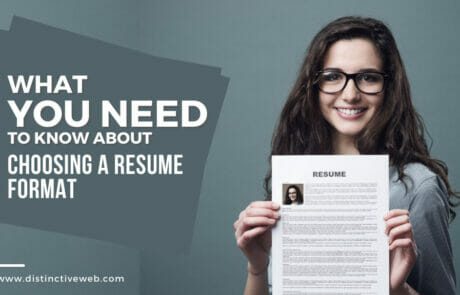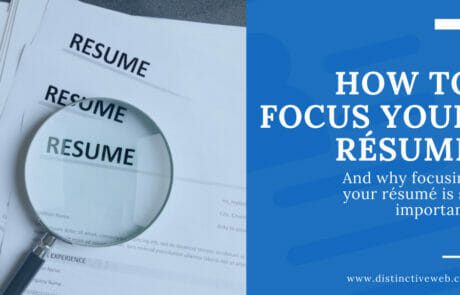
Achievements play a crucial role in making your resume stand out from the competition. They do more than just list your job responsibilities; they showcase your impact, highlight your capabilities, and demonstrate your potential to future employers. Achievements turn a mundane job description into a compelling narrative of your career progression and successes, reflecting your future potential.
However, if you are like many job seekers, you struggle with the misconception that you have no accomplishments worth mentioning on your resume. This article aims to help you identify and showcase your successes, even if you think you have no achievements for resume writing.
Key Takeaways
- Redefine achievements to include professional, personal, and academic milestones, showcasing a wide range of experiences and capabilities.
- Highlight daily successes and transferable skills to illustrate reliability, dedication, and the ability to handle challenges effectively.
- Tailor your resume to each job by aligning your achievements with the role, and use endorsements to add credibility and trust to your narrative.
Imagine walking into an interview room, confident that your resume has already articulated your value to the organization with undeniable clarity. This is the power of a resume rich in achievements—your silent ambassador that precedes you. The secret lies in redefining what we describe as an achievement and how we present our professional stories. It’s not just about the grand milestones; it’s the small wins, the daily successes, and the unique challenges we’ve navigated that collectively define our professional stature.
Most people tend to underplay their value, often restricting their resumes to a list of job titles and duties. Yet, employers are far more interested in how you’ve performed your roles, not just what those roles entailed. By reshaping our understanding of achievements, we can paint a compelling picture that not only lists our qualifications but truly captures the essence of our contributions.
What Qualifies as an Achievement on a Resume?
Shift your mindset, and let’s redefine what an achievement truly encompasses. Think beyond quantifiable accomplishments and consider the non-quantifiable accomplishments that make up the breadth of your experiences.
All these forms of achievements are a testament to your ability to set goals, overcome obstacles, and reach new heights. They are the milestones that have earned you recognition and can serve as indicators of future success in your career. By broadening your perspective on what you can achieve, you’re more likely to uncover a wealth of experiences that are both relevant and impressive to potential employers.
Identifying Hidden Achievements in Your Work Experience
Diving into your work experience with this broader definition of what an achievement is, you’ll likely find a treasure trove of accomplishments waiting to be unearthed. If you feel like you have no achievements for resume inclusion, think about daily tasks, collaborative projects, and any initiatives where you played a key role, as these can all demonstrate your value to potential employers.
Demonstrating ROI in Your Jobs
Every employer makes an investment when they hire an employee, expecting a return on that investment through your contributions to the company’s success. Even if you haven’t had a job with notable achievements like increasing sales or leading a team, you can still demonstrate how you delivered value in your role.
Focus on identifying the expected return on your job and then describe how you met or exceeded those expectations. By showcasing these aspects, you provide a comprehensive picture of your abilities and potential, even without quantifiable professional accomplishments. This approach shows employers that you are a reliable and valuable asset, capable of delivering a positive return on their investment.
Highlighting Daily Successes
Often, the most valuable achievements are found in the daily ‘grind.’ Think back on the routine tasks you’ve performed consistently; every report completed, every deadline met, and every initiative taken contributes to the bigger picture of your role’s success.
Reflect on the times you’ve collaborated with co-workers on successful projects, exceeded customer expectations, or received commendations from clients—these are all achievements that deserve the spotlight.
By documenting these small victories and the positive feedback you’ve garnered along the way, you can build a compelling narrative of reliability and dedication—qualities every employer seeks.
Ask yourself the right questions: How did my daily tasks benefit the company? What core values did I embody through my work? The answers to these questions will help you transform mundane responsibilities into powerful examples of your commitment and effectiveness for your resumes.
Showcasing Problem-Solving Skills
Every job comes with its set of challenges, and how you’ve tackled them speaks volumes about your capabilities. From resolving critical issues to introducing innovative solutions, these instances are perfect for demonstrating your problem-solving skills. Employers appreciate candidates who bring forward not just problems but also solutions, showcasing a blend of creativity, cross-functional collaboration, and critical thinking.
As you create your resume, consider how your actions have improved processes, uplifted team morale, or prevented mistakes from escalating. These examples not only highlight your knowledge and leadership but also tell a story of a proactive and driven professional capable of:
By including specific examples, you can showcase your skills and accomplishments in a compelling way.
Leveraging Personal Growth and Volunteer Work
Personal development and volunteer work are often overlooked, yet they can be rich sources of achievements for your resume. Whether you’re a recent graduate, a career changer, or an experienced professional, these experiences showcase your willingness to take on new challenges and your dedication to continuous improvement.
Even if you’ve taken on more responsibilities outside of your job, like tutoring or organizing community events, these efforts demonstrate your hard worker ethos and ability to contribute to a company’s culture and mission. Such experiences should be framed as accomplishments on your resume to underscore a diverse and well-rounded skillset.
Presenting Achievements on Your Resume
The Importance of Quantifying Achievements & How To Do It
Quantifiable results provide concrete evidence of your impact, making your accomplishments more tangible and credible to employers. By estimating the impact of your contributions using percentages, ranges, or descriptions of scale and scope, you can create a more compelling resume.
Estimating the Impact of Your Contributions
When possible, estimate the impact of your contributions in terms of revenue generated, costs saved, or time reduced. Providing numerical evidence helps to convey the extent of your success clearly.
Using Percentages and Ranges
If exact numbers aren’t available, use percentages or ranges to quantify your achievements. This approach can still convey significant value:
- Increased sales by approximately 20%.
- Reduced processing time by as much as 15%.
Describing the Scale and Scope of Your Jobs
Providing context around the scale and scope of your achievements paints a fuller picture of your contributions:
Examples of Quantifying Achievements in Various Jobs
- Sales: “Boosted annual sales 25%, resulting in an additional $1 million in revenue.”
- Marketing: “Led a campaign that increased website traffic 40% and conversions 15%.”
- Operations: “Implemented a new inventory system that reduced stock discrepancies 30%.”
More examples of quantified resume achievements can be seen in the following resume examples:
Example Business Development Resume w/ Quantified Achievements
Example Telecommunications Resume w/ Quantified Achievements
Example Human Resources Manager Resume w/Quantified Achievements
Quantifying Your Impact Without Numbers
Even when exact numbers are unavailable, you can still effectively present your achievements by focusing on qualitative outcomes and using relative comparisons.
Focus on Qualitative Outcomes
When quantitative data isn’t available, qualitative outcomes can be equally compelling. Highlight improvements in company processes, customer satisfaction, or team morale. For example:
- Built a more cohesive and productive working environment by enhancing team collaboration.
- Improved overall departmental efficiency by streamlining processes.
Using Relative Comparisons
Use relative comparisons to showcase your impact, such as:
- Improved customer satisfaction compared to previous years.
- Increased efficiency in operations, delivering the fastest project completion time of all regions nationwide.
While hard numbers provide concrete evidence, qualitative data can also serve as substantial proof of your abilities. By sharing examples of how you increased efficiency or improved customer satisfaction, you offer valuable insights into your capacity to make a tangible impact, even without exact figures.
Focusing on these qualitative aspects will allow you to effectively present your achievements and demonstrate your contributions, ensuring your resume highlights your value to potential employers.
The following are some example resumes that rely heavily on qualitative achievements.
Example Business Analyst Resume w/ Qualitative Achievements
Example Resume for Blue Collar Jobs w/ Qualitative Achievements
Example Financial Planning & Analysis Resume w/ Qualitative Achievements
Crafting Achievement-Oriented Bullet Points
Your resume’s bullet points are much more than a list; they’re the narrative of your career successes, highlighting your ability to make meaningful contributions and showcasing the tangible results of your efforts in a clear, concise format.
The CAR Model
The Challenge-Action-Result (CAR) model is a stellar way to structure these points, ensuring you focus on situations where you’ve significantly moved the needle.
Here are a couple of examples to illustrate the CAR model:
Example 1:
Challenge: Faced declining sales in the northeast region due to increased competition.
Action: Developed and implemented a targeted marketing campaign, focusing on key differentiators and customer engagement strategies.
Result: Achieved a 30% increase in regional sales over six months, surpassing targets by 15%.
Resume Bullet:
- Turned around declining sales, launching a targeted marketing campaign that achieved a 30% increase in regional sales over six months, surpassing targets 15%.
Example 2:
Challenge: Team productivity was hindered by outdated project management tools, leading to missed deadlines.
Action: Researched, selected, and implemented a new project management software, and conducted training sessions for team members.
Result: Improved project completion rate by 25%, with a 90% reduction in missed deadlines within three months.
Resume bullet:
- Rejuvenated team productivity by replacing outdated project management tools with new software that quickly improved project completion rates 25% and reduced missed deadlines 90%.
These examples show how the CAR model can turn simple statements into powerful narratives that highlight your transferable abilities and the tangible impacts of your actions.
Using Strong Action Verbs
Craft bullet points that are concise yet impactful. Begin each bullet point with a strong action verb, such as increased, improved, reduced, or streamlined, to immediately capture attention and maintain focus on the results you’ve achieved. This method not only keeps your resume concise but also makes it more dynamic and engaging for the reader.
Front-Loading Achievement Bullets with Results
Front-loading achievement bullets means beginning with the results you’ve achieved, followed by the actions you took to get there. This approach immediately highlights your impact, making your accomplishments stand out. By leading with the outcome, you capture the reader’s interest from the start, showcasing your ability to deliver tangible results. Here are a couple of examples, one with quantified results and one with non-quantifiable accomplishments.
- Increased sales 30% in six months by developing and executing a targeted marketing campaign that focused on customer engagement and competitive differentiation.
- Enhanced team productivity by implementing a new project management tool and providing comprehensive training, leading to a smoother workflow and timely project completions.
By front-loading your achievements with results, you ensure that the most significant part of your accomplishment is noticed first, making your resume more impactful and memorable.
Highlighting Transferable Skills and Professional Development
In a world where job roles are continually evolving, transferable skills are gold. Employers seek professionals who can adapt and thrive in various environments, making your soft skills a centerpiece of your resume.
Don’t just list these—show how they’ve been used to benefit the companies you have worked for. You can also describe how they were developed and applied through professional development activities, like training or certifications. This not only shows you’re a lifelong learner but also that you’re proactive about enhancing your career prospects. Here are a couple of examples to illustrate this concept:
- Demonstrated strong leadership by spearheading a cross-functional team project that improved departmental efficiency by 20%.
- Completed training program to improve professional communication skills, using learnings to deliver a 30% increase in customer satisfaction scores.
Tailoring Your Resume to the Target Job
Every job application is a new opportunity to align your achievements with the needs of a potential employer. Take the time to customize your resume for each particular job, using relevant keywords from the job ad to speak directly to the hiring managers and recruiters.
This doesn’t just help your resume pass through Applicant Tracking Systems (ATS); it demonstrates that you’ve done your homework and that you’re genuinely interested in the role. Remember, a compelling resume is one that resonates with the reader, and tailoring it is key to making that connection.
Highlighting Awards, Honors, and other Recognition
Using awards and honors as achievements on your resume is a powerful way to demonstrate your excellence and the value you bring to any company and position. These accolades serve as tangible proof of your skills, dedication, and impact, making your resume stand out to potential employers.
When listing awards and recognitions, choose those relevant to the jobs you’re applying for. Clearly indicate the criteria for the award, showcasing the competitive nature or significant effort required to achieve it. Place them in a dedicated section or under the relevant job experience to ensure they are easily noticed.
Using Storytelling to Connect Achievements to Career Goals
The best professional resume writers write resumes that tell a story. A resume that tells a story is more than just a document—it’s a journey through your career that leads to your future aspirations. Weave your achievements into this narrative, showing how each experience has been a step towards your larger career goals.
Storytelling in your resume also allows your passion and personality to shine through, allowing employers to see not just what you’ve done but who you are and what you aim to achieve. This creates a compelling and relatable profile that stands out in a sea of candidates.
Expanding on Successes in Your Cover Letter
Your cover letter is the perfect companion to your resume, offering a space to delve into the stories behind your achievements. Here, you can provide more context and detail, painting a fuller picture of your successes and how they relate to the job you’re applying for.
Use bulleted lists in your cover letter to make your accomplishments stand out, and consider including a testimonial to add weight to your claims. This approach ensures that hiring managers grasp the full scope of your capabilities and the value you’ll bring as a new employee.
Frequently Asked Questions
How do I write my resume if I have never had a job with notable achievements like increasing sales or leading a team?
Every employer hires expecting a return on their investment. Highlight your daily successes, transferable skills, personal growth, and volunteer work on your resume. Show on your resume how you met or exceeded job expectations, emphasizing consistent performance, professional development, and impactful contributions. For example, 'Consistently met deadlines, enhancing client satisfaction,' or 'Led volunteer events, demonstrating leadership and organizational skills.' This approach conveys your value even without traditional achievements.
How do I quantify achievements on my resume if I do not have access to exact numbers or data?
You can quantify achievements on your resume by describing the scope and scale of your projects, using percentages to indicate improvements, and highlighting the impact of your contributions in comparative terms. For example, 'Enhanced team efficiency by approximately 20%,' or 'Improved customer satisfaction, leading to better client retention.' Focus on the overall impact and positive changes you've driven, rather than exact numbers, to effectively showcase your achievements.
Can I include testimonials from co-workers on my resume or should they only be from managers?
Yes, you can include testimonials from co-workers on your resume, particularly if they emphasize your collaboration, work ethic, and impact on team projects. These testimonials can be valuable in showcasing your interpersonal skills and contributions. Just ensure they are relevant to the job you're applying for and highlight qualities and achievements that align with the position's requirements. Including a mix of testimonials from both managers and co-workers can provide a well-rounded view of your capabilities.
How much should I tailor my resumes for each job application?
You should tailor your resumes for every job application by aligning your achievements with the description of the job you are applying for and using relevant keywords. This demonstrates to employers that you are a good fit and have put thought into your application.
Is it worth investing in a professional resume writer?
Absolutely. A professional resume writer can significantly enhance your resume by expertly showcasing your achievements and strengths. They bring industry knowledge and expertise, ensuring your resume stands out and effectively communicates your value to employers. Additionally, they optimize your resume for Applicant Tracking Systems (ATS), increasing the chances of your resume being seen by hiring managers. If you struggle to articulate your accomplishments or want a polished, impactful resume, investing in a professional writer is a wise decision that can accelerate your job search success.















